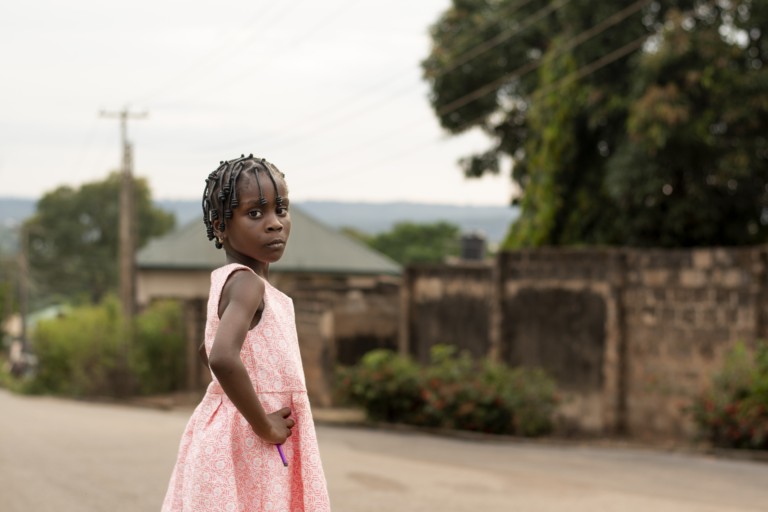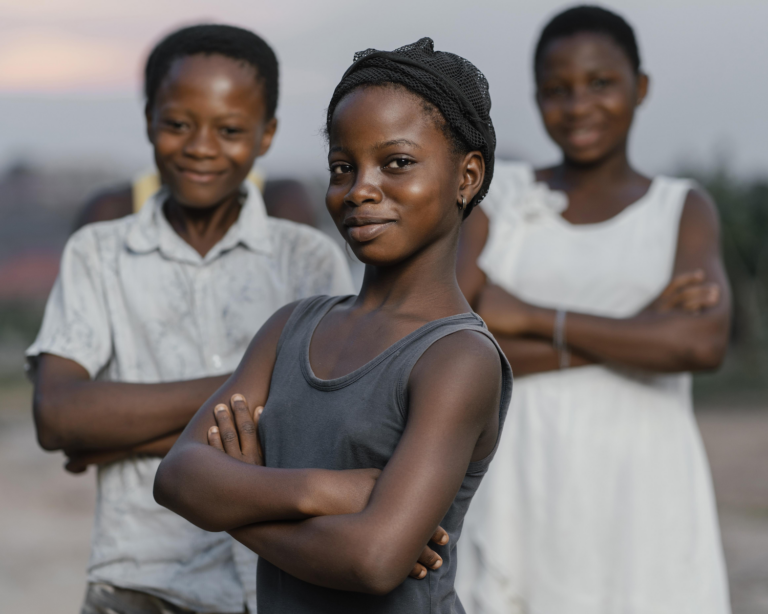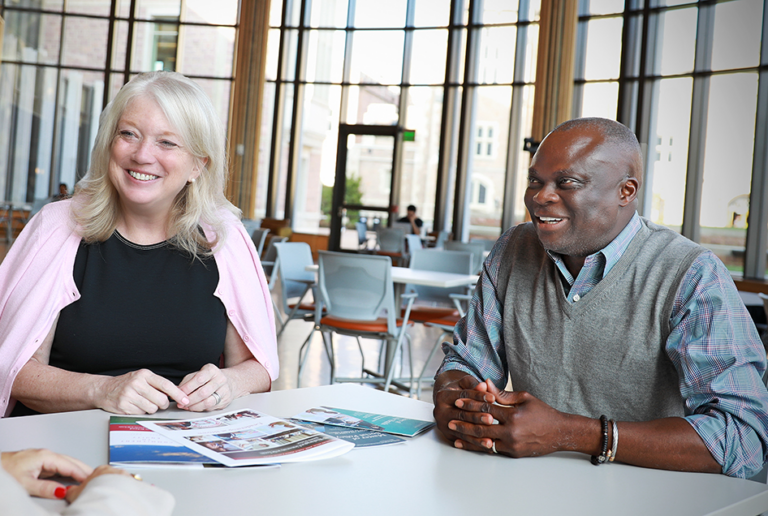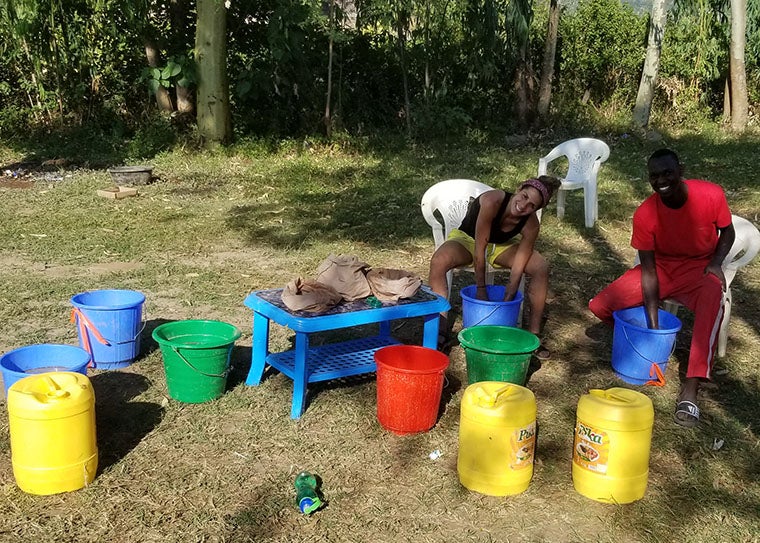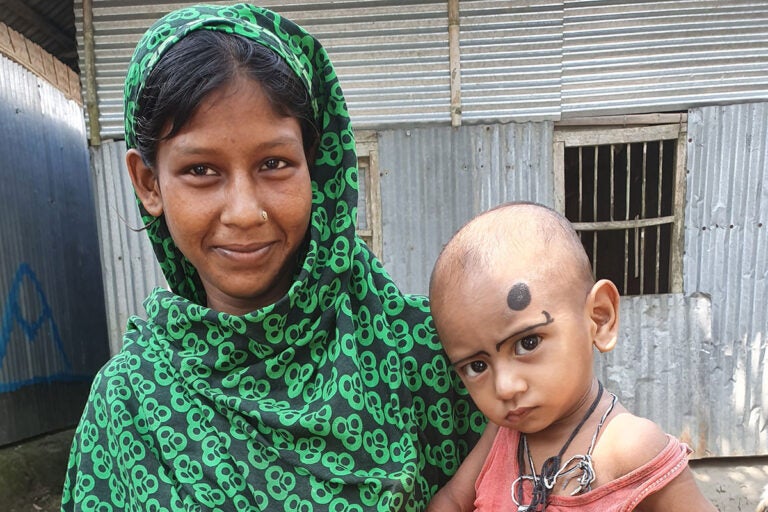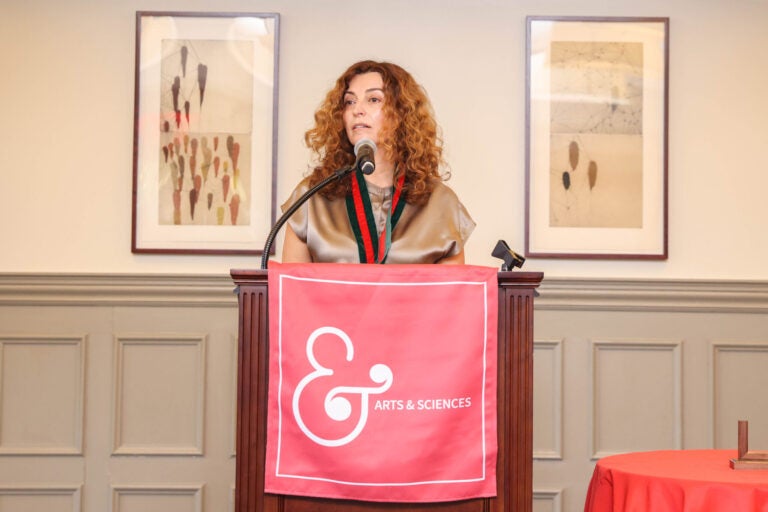Call for action on girls’ vulnerability in Ghana
A recent publication by Ozge Sensoy Bahar, Co-Director of the International Center for Child Health and Development (ICHAD), in the journal Lancet Child & Adolescent Health addresses the pressing issue of adolescent girls’ vulnerability to child labor and migration in Ghana. The paper is a call to action for national and local leaders, policymakers, researchers, and community […]
Here & Next grant for signage addressing risks of girls’ migration in Ghana
Ozge Sensoy Bahar, Research Associate Professor and Co-Director of the International Center for Child Health and Development (ICHAD) at the Brown School, together with Penina Acayo Laker, Associate Professor at the Sam Fox School, received Tier 2 funding from Here & Next to collaborate with colleagues at the University of Ghana to develop a set of […]
ICHAD awarded Here and Next Tier 3 grant for HIV global center
Fred Ssewamala, the William E. Gordon Distinguished Professor and Founding Director of the International Center for Child Health and Development (ICHAD) at the Brown School, along with his colleagues Mary McKay, Vice Provost for Interdisciplinary Initiatives at the Provost Office, and Patricia Cavazos-Rehg, Professor of Psychiatry at the School of Medicine at Washington University in St. Louis, […]
Archaeologists report earliest evidence for plant farming in east Africa
A trove of ancient plant remains excavated in Kenya helps explain the history of plant farming in equatorial eastern Africa, a region long thought to be important for early farming but where scant evidence from actual physical crops has been previously uncovered. In a new study published July 10 in the Proceedings of the Royal Society […]
Study highlights importance of caregiver well-being in Uganda
A group-based curriculum called Journey of Life (JoL) — delivered over 12 sessions in the Kiryandongo refugee settlement in Uganda — led to improvements in mental health, social support, parental warmth and attitudes around violence against children, finds a new study from the Brown School. This study highlights the crucial role refugee caregivers play in mitigating the impacts of […]
Global trials for WashU’s childhood malnutrition therapy backed by Andy Newman gift
A staggering 3 million children die from malnutrition across the globe each year, with many more left with long-lasting deficits in their growth and development. Jeffrey I. Gordon, MD – widely regarded as the father of the microbiome – has dedicated his life’s work to changing this paradigm. Gordon, of Washington University School of Medicine […]
Lemur’s lament, balancing conservation
What can be done when one threatened animal kills another? Scientists studying critically endangered lemurs in Madagascar confronted this difficult reality when they witnessed attacks on lemurs by another vulnerable species, a carnivore called a fosa. This dynamic can be particularly complex when the predation occurs in an isolated or poor-quality habitat, according to research […]
Parvulescu wins $1.2M EU grant to study comparative literature origins
Anca Parvulescu, the Liselotte Dieckmann Professor in Comparative Literature and a professor of English, both in Arts & Sciences, at Washington University in St. Louis, will serve as principal investigator for a $1.2 million grant exploring the history of comparatism and the origins of the comparative method. The project is funded by the European Union, […]
WashU students explore Shakespeare at Globe Theatre in London
Last summer, 18 students from Washington University in St. Louis traveled to London for an intensive summer program at Shakespeare’s Globe Theatre. In this video, Claire Sommers, a lecturer in the Performing Arts Department in Arts & Sciences, describes the group’s aims and what it means to explore the places that shaped the Bard. “I […]
Global Advisory Council to enhance WashU’s international initiatives
Chancellor Andrew D. Martin has established a Global Advisory Council to maximize the impact of Washington University in St. Louis’ global efforts in research, education, patient care, recruitment and advancement. The council, which comprises administrators, faculty and staff, will meet quarterly to help strengthen relationships with local and global alumni communities; enhance cross-school collaboration around […]
